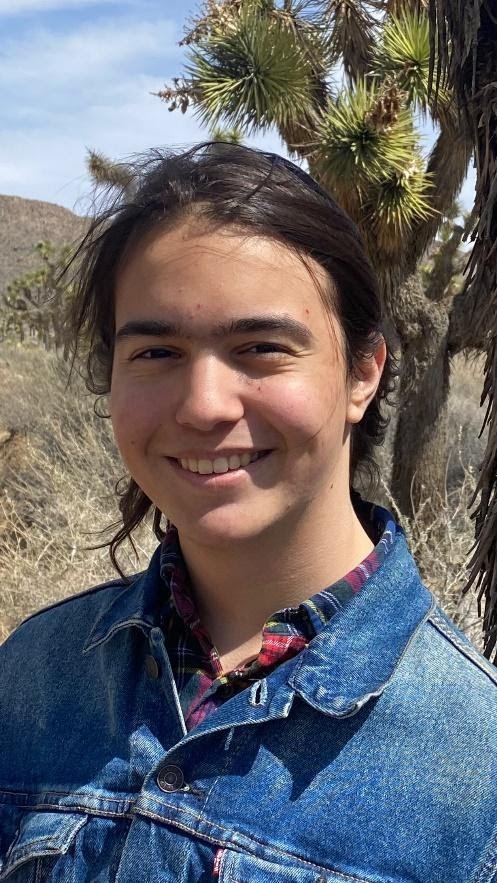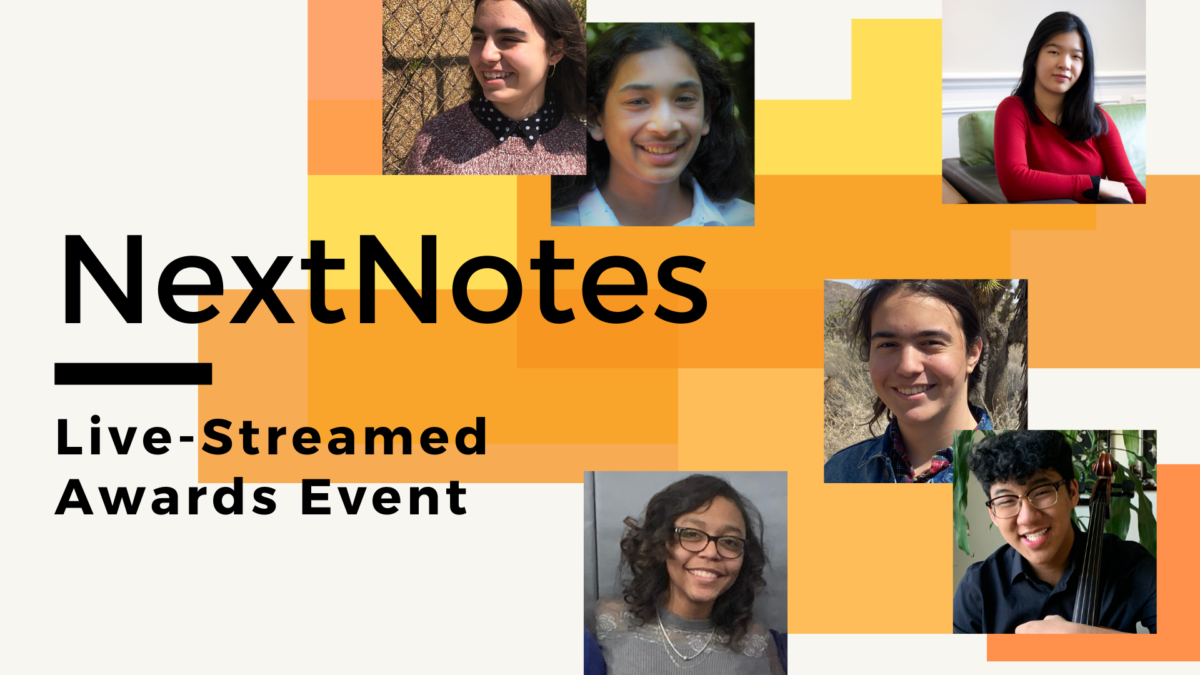Friday, June 26th, 2020

Jasper Talwani comes from a musical family but his journey to music was anything but a straight path. His parents studied music at different parts of their lives and wanted him and his siblings to study, as well. In fact, Jasper’s sister, Lucy is a previous Next Notes winner. Initially, Jasper resisted the push towards music.
“My mom tried to get me into many forays of the arts and none of them worked.”
One of them, Jasper remembers was when she tried to get him into drama.
“So, I took this drama class with Debbie Devine at Colburn [Community School for the Performing Arts in Los Angeles, CA] and I would just sit in the corner [hands crossed and pouting] the whole time.”
He did this for a couple classes until Debbie finally told his mom that maybe this wasn’t the right time for this class. They tried a variety of things to inspire the creative side of Jasper but it wasn’t until he was choosing his middle school and felt that Urban Arts was the place for him because it didn’t have homework.
“The catch was I had to choose dance or music and at first was like ‘I hate music so much, I’m going to do dance.’” and after one class he knew he wasn’t cut out for dance. “And so I chose to play the bass because it was a string program. I started taking Colburn classes. And I got into jazz.”
Jasper’s dad is a big music fan and has a massive collection of mostly rock but at one point he figured that Jasper should know about jazz. And so one day he turned on Miles Davis in the car.
“I thought this is really cool. I can hear the drums. I can hear the bass. And I can hear the piano. And I can hear how they all have their separate roles and it was so different from classical music which is mostly what I had been playing before.”
Eventually, Colburn became a musical home for Jasper as he studied with John Moffett and then became a part of the Colburn Monday Night Band under the direction of Lee Secard.
Jasper read the word eschatology in a book one day and just had to look it up. It happens to be theological studies related to the end times or Armageddon and Jasper, loving the dramatic nature of the word, tucked it away for a future song title. Eschatology for drum set, double bass, piano, guitar, trumpet, alto saxophone, tenor saxophone, and violin began as an untitled piece.
“I wrote this song, and I rarely have meaning or a title or anything in mind when I am writing. I am usually just writing. And honestly, half of my songs are untitled, I am terrible at titles. I was about to bring it to rehearsal and wondered what to call it. It’s a pretty angsty song. It has a very urgent motive. And at the time I was really anxious about the fact that I am 17 and 2020 and I am going to be alive when the world [falls apart] due to climate change. We are the first generation where the threat of the apocalypse is real and it’s hard to see the other side of it.”
The first section of Eschatology is evocative angst-driven anxiety of fretting or realization that it is the end of the world. Jasper pulls the pulse down in the middle section of the piece to articulate that there are reasonable solutions and perhaps all is not lost only to return to a frantic hysteria in the final section of the piece. Jasper is a big fan of Charles Mingus who he notes as a big influence on his compositional style, particularly in Eschatology.
“I feel like [Mingus] is one of the few really really original jazz composers in the sense that he wasn’t just writing tunes. I feel like with him he had this whole conception on how he was going to arrange it. What he was going to be doing novelly in terms of orchestration and form, something other than just the head, solos, and then head. So, That’s what really draws me to Mingus.That and the color palette he would use.”
Jasper is also inspired by composers like Duke Ellington and Thelonious Monk.
In middle school, Jasper stumbled upon the study Indo-European Historical Linguistics which is the study of how European languages have evolved over time while he was exploring the ways Latin and Spanish are related and ever since then, he has been fascinated with words and language. He is currently exploring the linguistics of the indigenous languages of the Americas. There is a correlation between the love of language and music but for now, Jasper’s focus will be studying Linguistics at UC Berkeley.
“I have no idea how these two interests are going to balance each other out. I am just trying to follow what interests me. If I end up being a musician, if I end up being a linguist, it’s all fine.”

Join us on Saturday, June 27, 2020 at 7:30pm CDT as, for the first time, NextNotes will culminate in a live-streamed awards ceremony emceed by public radio and podcast creator of Trilloquy, Garrett McQueen. The ceremony will celebrate Charlotte and the other five talented creators who were selected from over 140 across the US and represent the skill and range of music being created today. Learn about their experience as part of this year’s cohort and hear samples from the award winning creations. Livestream the ceremony here.
The NextNotes High School Music Creator Awards are generously supported by The Augustine Foundation, the Rosemary and David Good Family Foundation, The Thelma Hunter Fund, the Dr. Fred Noah Gordon Charitable Fund of The Minneapolis Foundation, and other generous individuals.